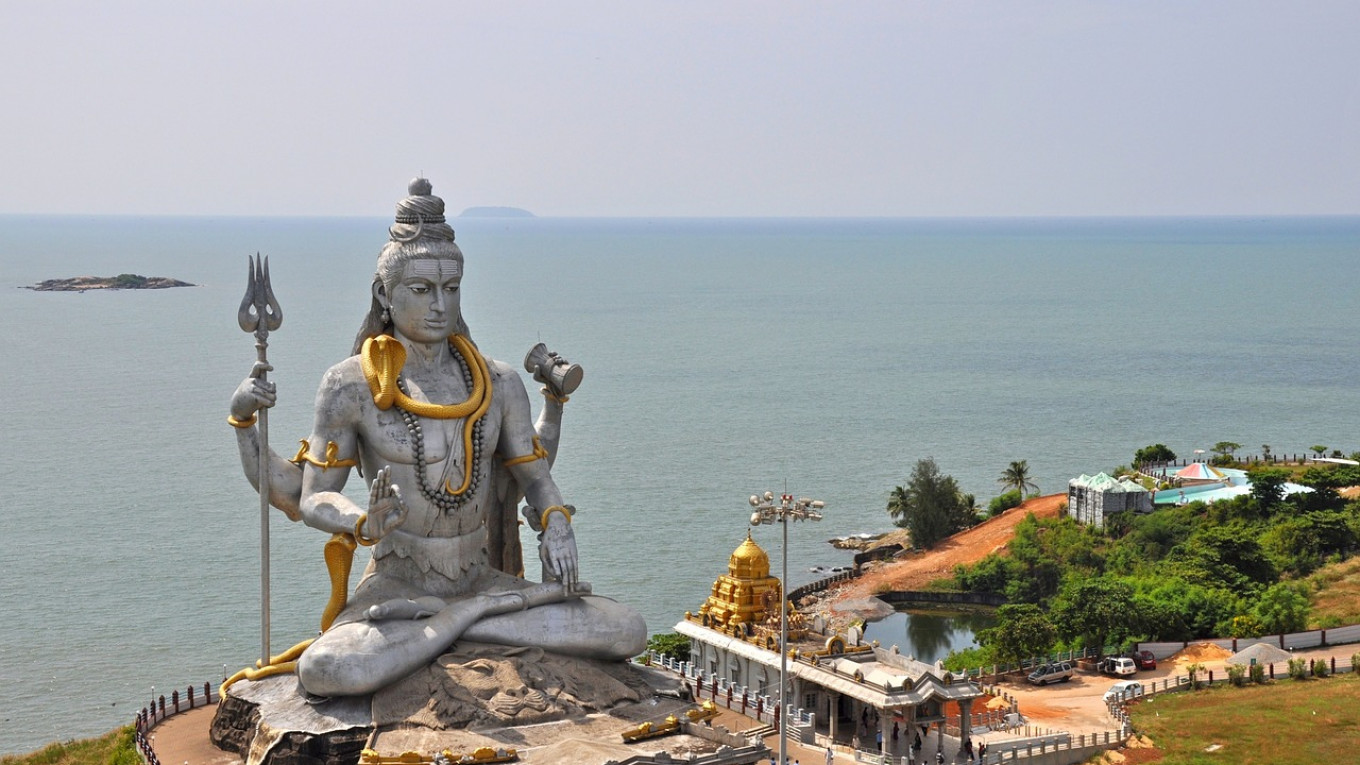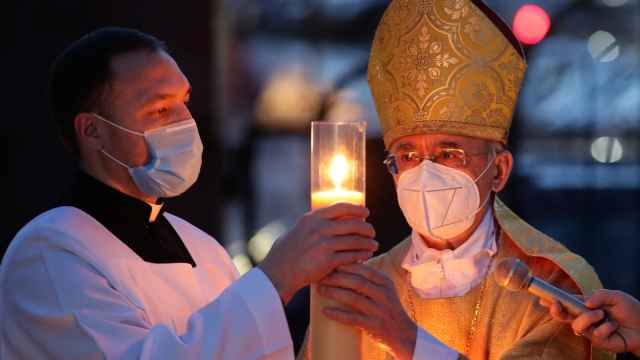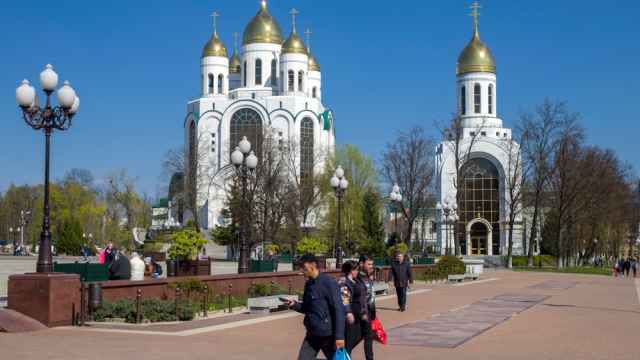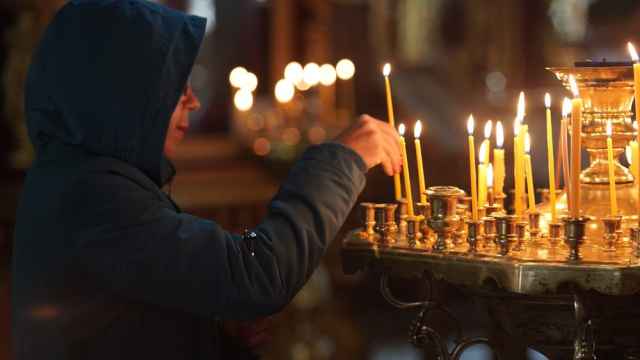A Russian astrologer and yoga instructor said she has been accused of illegal missionary work for organizing celebrations of a major Hindu festival.
Yekaterina Kalinkina, 47, faces a fine of 50,000 rubles ($650) for organizing and promoting events marking the festival of Maha Shivratri on social media in March, according to documents she posted Friday.
Maha Shivratri, also known as “the great night of Shiva” — the patron god of yoga, meditation and arts — is a widely recognized festival in Hinduism that celebrates “overcoming darkness and ignorance.”
The attached prosecution file notes that Kalinkina’s posts constitute illegal missionary work because she is not an authorized religious leader and “no religious association of the Hindu god Shiva is registered” in the central Russian republic of Udmurtia.
Kalinkina said on social media that the administrative charges are “not fatal, but [they make] me think about the future.”
She wrote that she is contemplating “going underground” — continuing to teach yoga and organize big Hindu holidays, but without posting about them on social media — or emigrating from Russia.
“Option three is connecting with two more invincible and strong-minded people with a residence permit in Udmurtia and registering as the ‘Sanatana Dharma’ religious group,” Kalinkina said.
Many practitioners of Hinduism, the world’s third-largest religion, refer to their belief as Sanatana Dharma (“the Eternal way” in Sanskrit).
“After that, illegal missionary activity becomes legal,” Kalinkina wrote.
“Do you know anyone that brave?” she asked her friends and followers on VKontakte, Russia’s equivalent of Facebook.
News of Kalinkina’s anticipated fine follows a U.S. Congressional panel’s proposal to blacklist Russia among the world’s “worst violators” of religious freedom. The designation would pave the way for sanctions, according to the U.S.-funded Radio Free Europe/Radio Liberty news website.
The U.S. Commission on International Religious Freedom said in an April 21 report that Russia in 2020 stepped up fines, detentions and criminal charges against religious minorities deemed to be “nontraditional.”
The Jehovah’s Witnesses, a Christian denomination whose members have long been viewed with suspicion in Russia and which was outlawed as “extremist” in 2017, were subjected to nearly 500 raids and almost 200 criminal cases against them that year.
A Message from The Moscow Times:
Dear readers,
We are facing unprecedented challenges. Russia's Prosecutor General's Office has designated The Moscow Times as an "undesirable" organization, criminalizing our work and putting our staff at risk of prosecution. This follows our earlier unjust labeling as a "foreign agent."
These actions are direct attempts to silence independent journalism in Russia. The authorities claim our work "discredits the decisions of the Russian leadership." We see things differently: we strive to provide accurate, unbiased reporting on Russia.
We, the journalists of The Moscow Times, refuse to be silenced. But to continue our work, we need your help.
Your support, no matter how small, makes a world of difference. If you can, please support us monthly starting from just $2. It's quick to set up, and every contribution makes a significant impact.
By supporting The Moscow Times, you're defending open, independent journalism in the face of repression. Thank you for standing with us.
Remind me later.






